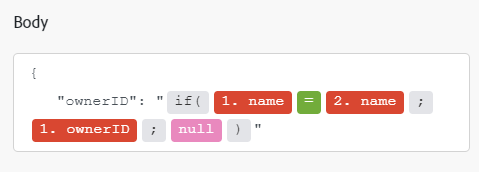Adobe Authenticator modules
The Adobe Authenticator module allows you to connect to any Adobe API, using a single connection. This allows you to more easily connect to Adobe products that do not yet have a dedicated Fusion connector.
The advantage over the HTTP modules is that you can create a connection, as in a dedicated app.
To see a list of available Adobe APIs, see Adobe APIs. You may be able to use only the APIs to which you are assigned.
Access requirements
| table 0-row-2 1-row-2 2-row-2 3-row-2 layout-auto html-authored no-header | |
|---|---|
| Adobe Workfront package |
Any Adobe Workfront Workflow package and any Adobe Workfront Automation and Integration package Workfront Ultimate Workfront Prime and Select packages, with an additional purchase of Workfront Fusion. |
| Adobe Workfront licenses |
Standard Work or higher |
| Adobe Workfront Fusion license |
Operation-based: No Workfront Fusion license requirement Connector-based (legacy): Workfront Fusion for Work Automation and Integration |
| Product | If your organization has a Select or Prime Workfront package that does not include Workfront Automation and Integration, your organization must purchase Adobe Workfront Fusion. |
For more detail about the information in this table, see Access requirements in documentation.
For information on Adobe Workfront Fusion licenses, see Adobe Workfront Fusion licenses.
Prerequisites
-
You must have access to the Adobe product that you want the module to connect to.
-
You must have access to the Adobe Developer Console.
-
You must have a project on the Adobe Developer Console that includes the API that you want the module to connect to. You can:
-
Create a new project with the API.
Or
-
Add the API to an existing project.
For information on creating or adding an API to a project on the Adobe Developer Console, see Create a project in the Adobe documentation.
-
Adobe Authenticator API information
The Adobe Authenticator connector uses the following:
Create a connection
An Adobe Authenticator connection connects to a single project on the Adobe Developer Console. To use the same connection for more than one Adobe API, add the APIs to the same project, and create a connection to that project.
You can create separate connections to separate projects, but you cannot use a connection to access an API that is not on the project specified in that connection.
To create a connection:
-
In any Adobe Authenticator module, click Add next to the Connection field.
-
Fill in the following fields:
table 0-row-2 1-row-2 2-row-2 3-row-2 4-row-2 5-row-2 6-row-2 7-row-2 8-row-2 9-row-2 10-row-2 layout-auto html-authored no-header Connection type Select whether you want to create an OAuth Server-to-Server connection, or a service account (JWT) connection. We highly recommend creating OAuth connections. Connection name Enter a name for this connection. Client ID Enter your Adobe Client ID. This can be found in the Credentials details section of the Adobe Developer Console. Client Secret Enter your Adobe Client Secret. This can be found in the Credentials details section of the Adobe Developer Console. Scopes If you have selected an OAuth connection, enter the scopes needed for this connection. Technical account ID If you have selected a JWT connection, enter your Adobe Technical account ID. This can be found in the Credentials details section of the Adobe Developer Console. Organization ID If you have selected a JWT connection, enter your Adobe Organization ID. This can be found in the Credentials details section of the Adobe Developer Console. Meta Scopes If you have selected a JWT connection, enter the meta scopes needed for this connection. Private key If you have selected a JWT connection, enter the private key that was generated when your credentials were created in the Adobe Developer Console.
To extract your private key or certificate:
-
Click Extract.
-
Select the type of file you are extracting.
-
Select the file that contains the private key or certificate.
-
Enter the password for the file.
-
Click Save to extract the file and return to the connection setup.
Base URLs You must add the base URLs that you want this authenticator to allow. When using the Make a custom API call module later in the scenario, you will add a relative path to the chosen URL. By entering URLs here, you can control what the Make a custom API call module can connect to, which increases security.
For each base URL that you want to add to the authenticator, click Add item and enter the base URL.
Authentication URL Leave this blank to use the standard Adobe IMS authentication URL of https://ims-na1.adobelogin.com. If you do not use Adobe IMS for authentication, enter the URL to use for authentication. -
-
Click Continue to save the connection and return to the module.
Modules
Make a custom API call
This action module allows you to make a call to any Adobe API. It supports large files, instead of text-only bodies.
This module was made available on November 14, 2024. Any Adobe Authenticator > Make a custom API call configured before this date does not handle large files, and is now considered the Make a custom API call (Legacy) module.
Make a custom API call (Legacy)
This action module allows you to make a call to any Adobe API.
